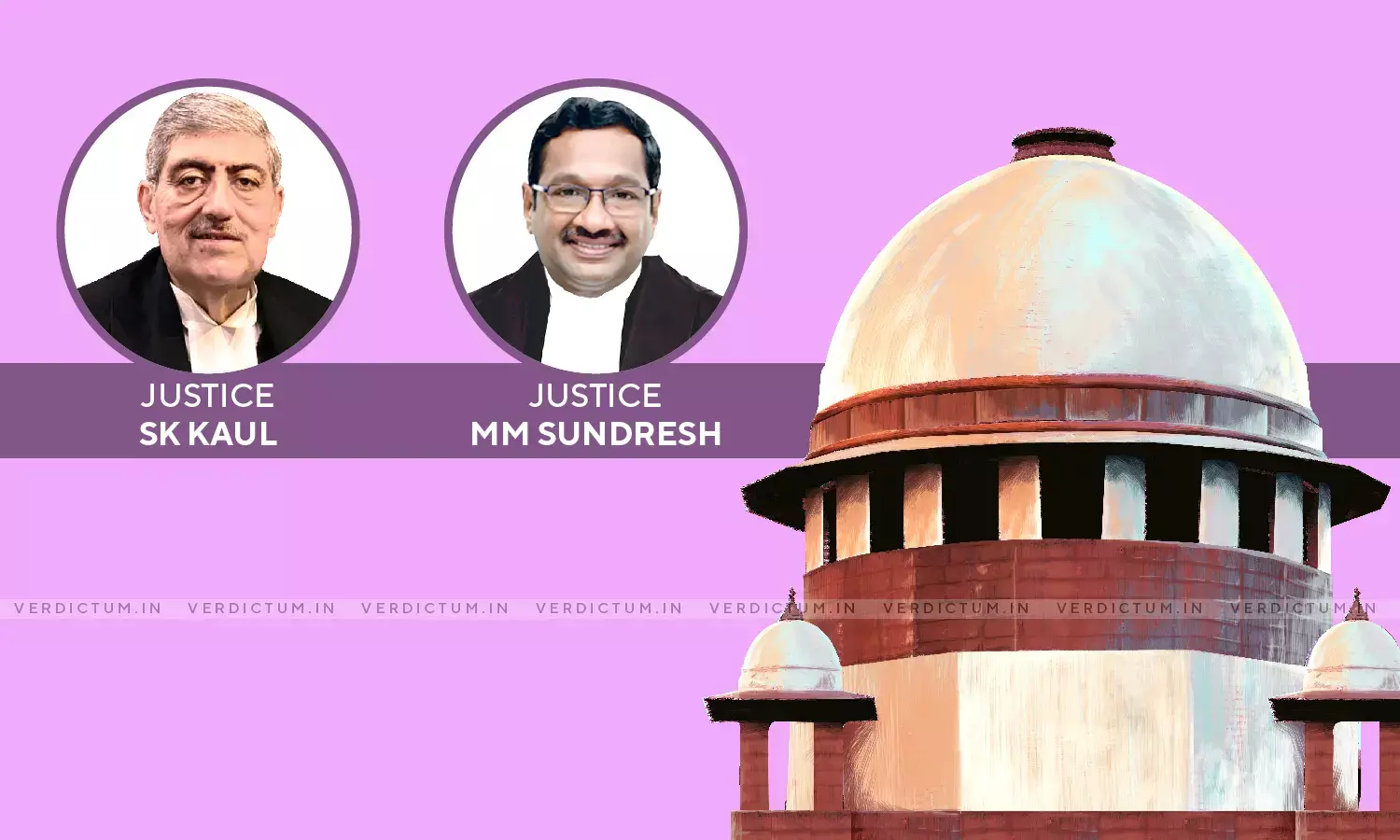Burden On Accused Is Rather Heavy To Establish The Plea Of Alibi With Certitude: SC Reiterates

A two-judge Bench of the Supreme Court comprising of Justice Sanjay Kishan Kaul and Justice MM Sundresh, relying upon the decisions rendered in Vijay Pal v. State (Government of NCT of Delhi), (2015) 4 SCC 7 and Jitender Kumar v. State of Haryana, (2012) 6 SCC 204 held that the accused had the burden to establish the plea of alibi which he had failed to discharge.
An FIR was registered under Sections 302 and 34 of IPC and Section 27 of the Arms Act against 6 accused. All 6 were charged under Section 302/34 IPC while Pappu was additionally charged with Section 27 of the Arms Act.
All accused were convicted and sentenced to life imprisonment. Pappu was additionally sentenced to undergo rigorous imprisonment for 3 years under Section 27 Arms Act.
The Jharkhand High Court affirmed the judgment of conviction against all 6 convicts, however, it opined that since Pintu was a minor and had already remained in jail for more than 3 years no further order of detention could be passed in view of Section 15 and 16 of the Juvenile Justice (Care and Protection of Children) Act, 2000.
Three accused filed an appeal before the Apex Court. An application was filed by Pappu seeking exemption from surrendering. The same was dismissed. The SLP was also dismissed without reference to the Court.
Upendra and Ajay Pal filed a joint appeal with the application for condonation of delay. The appeal of Ajay was dismissed. Leave was granted qua Upendra's appeal.
The appeal of Upendra was admitted on his plea of alibi.
The Court noted that it did not find any merit whatsoever in the same. The Court noted that the burden was on Upendra to establish the plea of alibi which he failed to discharge.
The counsel for the Appellant contended that in the appeal filed against a conviction of Upendra in another case, he was acquitted.
It was contended on behalf of the State that no attempt was made to distinguish the appellant's role from that of Ajay pal and the appeal of Ajay Pal being dismissed, the only aspect that was to be examined was whether the concurrent findings needed to be interfered with by the Apex Court when the burden lay heavily on the Appellant.
The Court, accordingly, dismissed the appeal of Upendra Tiwari.
Insofar as the appeal of Pappu Tiwari was concerned, the Court, relying on the evidence placed on record, and the principles enunciated in Sudarshan & Anr. v. State of Maharashtra, (2014) 12 SCC 312 made the following observations:
"On the touchstone of the principles laid down aforesaid it can hardly be said that the mandate of law under Section 157 Cr.P.C. has not been met. On the intimation of the incident, the fardbeyan was recorded expeditiously, inquest report prepared and the FIR was registered within 25 minutes of the same. The body was sent for post-mortem immediately and the FIR was sent to the court the next morning. We cannot say that there is any loophole which could have been utilised or that the FIR was ante timed and, thus, the objective of the requirement for sending the FIR to the Magistrate has been complied with. Thus, there is no merit in this plea."
The Court noted that there was little doubt that there is not a minor but a major difference in recording the number of injuries suffered by the deceased in the inquest report and the post-mortem report. The Court noted that, however, this will not be fatal in its view.
The Court noted that the inquest report is not substantive evidence and the objective is to find out whether a person had died under suspicious circumstances, what may be the apparent cause of his death.
The Court, on facts, made following observations:
"In the present case the death was unnatural. There were wounds. There is no doubt that it is a homicide case. The expert is the doctor who carries out the post-mortem and has been medico legal expert. The two fire arm injuries have been clearly identified with the wounds at the entry and at the exit being identified. We have already discussed the proximity of the time period between the intimation and the police proceeding with it right up to the stage when the post-mortem commenced. We do not find any substance in this plea."
The Court also held that there was no discrepancy between the medical and ocular evidence.
The Court came to the conclusion that the story put forth by the prosecution has been established and had not been dented by the Appellant to cast doubt.
Both the appeals were therefore dismissed.
Click here to read/download the Judgment

